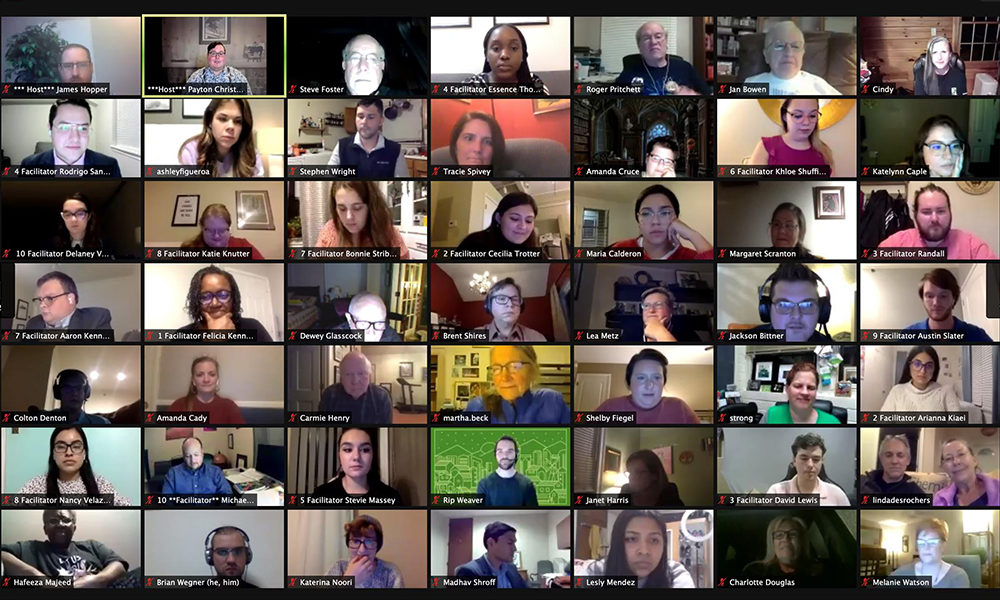At its foundational level, the Rockefeller Ethic is about being able to talk to each other about complex and sometimes controversial topics without feeling anger toward the person we’re speaking to. The Rockefeller Ethic is hinged on people seeing past their knee-jerk response and instead actually listening to each other and seeing why it is they feel the way they do. That is one of many reasons it is such a pleasure to be working with the Clinton School of Public Service (CSPS) to help Arkansans develop those skills free of charge.
We have teamed up to bring select National Issues Forum (NIF) dialogues, virtually, to our neighbors across Arkansas. Participants can share their thoughts on current pressing issues and, most importantly, share their thoughts with each other in a structured, facilitated way. Using the topic breakdowns and meeting format from NIF and combining it with facilitation from trained CSPS students, we have already explored ideas for bridging the divide in the American political system, and what might be the best way to create a healthy economy after the global pandemic. Even though thoughts and opinions on both topics vary wildly, the NIF guides and facilitators keep the conversation focused on why each individual believes what they do, rather than trying to convince others to believe it as well.
That structured approach to conversation is the perfect way to allow everyone participating to share their perspectives while learning about the perspectives of everyone else. This is not just a cornerstone of the Rockefeller Ethic, but also to civic engagement and participation in democratic practice. That’s why it is so exciting that these dialogues and our partnership with CSPS are part of the Kettering Foundation’s Initiatives for Democratic Practices. We join dozens of other nonprofits and policy centers around the nation to present the NIF dialogues and help citizens begin to see each other as individuals instead of members of opposing teams. We also work with other local partners, like the Central Arkansas Library System, to help promote the events and explore Arkansas-specific issues guides, making the experience of sharing thoughts even more personal.
With two issue guides worked through and the collaboration of such great partners, we are looking forward to future offerings. Future topics include a look at food insecurity, policing, immigration, and other topics with no simple answers and many different ways to view. Our hope is to continue these conversations with our fellow Arkasans, virtually for now and in-person in the future, so that people have a better understanding of each other and a place to really examine these issues without feeling like they need to defend their positions.
The process makes for an interesting space where you might not always hear what you want to. You’ll likely hear things you flat out disagree with, but you’ll also hear every individual’s reason for preferring the option that you abhor. At the heart of it all is each person’s individual perspective and experiences, where if you are willing to hear theirs and you are willing to share yours, then it’s possible to disagree without being disagreeable. It’s not easy at first, and all parties have to have a little give-and-take, but with practice, some guidance, and a lot of openness, it is possible. It’s also very rewarding.
As Governor Rockefeller said, “Every citizen has the duty to be informed, to be thoughtfully concerned, and to participate in the search for solutions.”

Payton Christenberry
Senior Program Officerpchristenberry@uawri.org(501) 727-6255Christenberry has put the Rockefeller Ethic to work in many programs related to rural health and arts & humanities in Arkansas, including the annual Rural Health Summit and its many initiatives.

